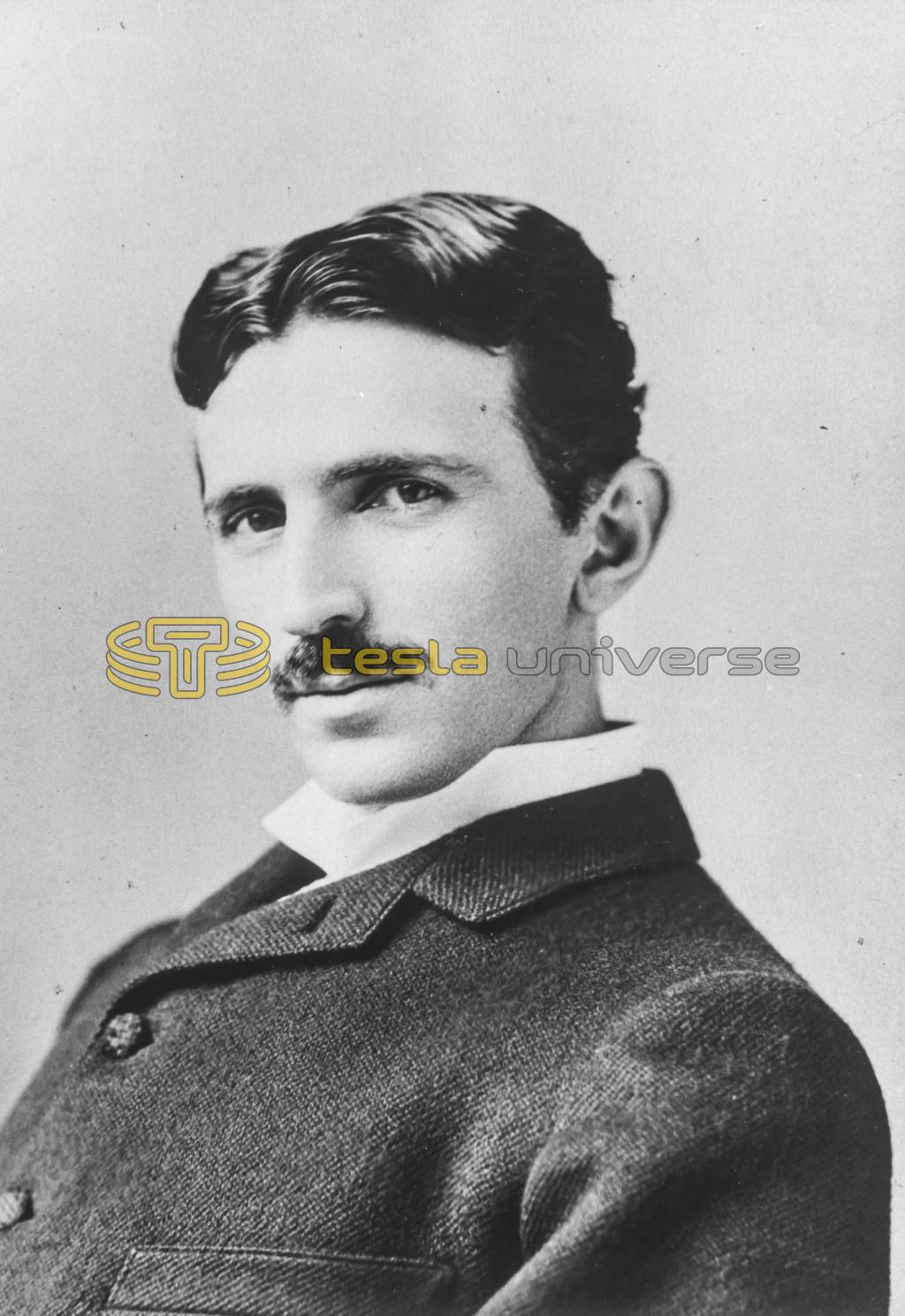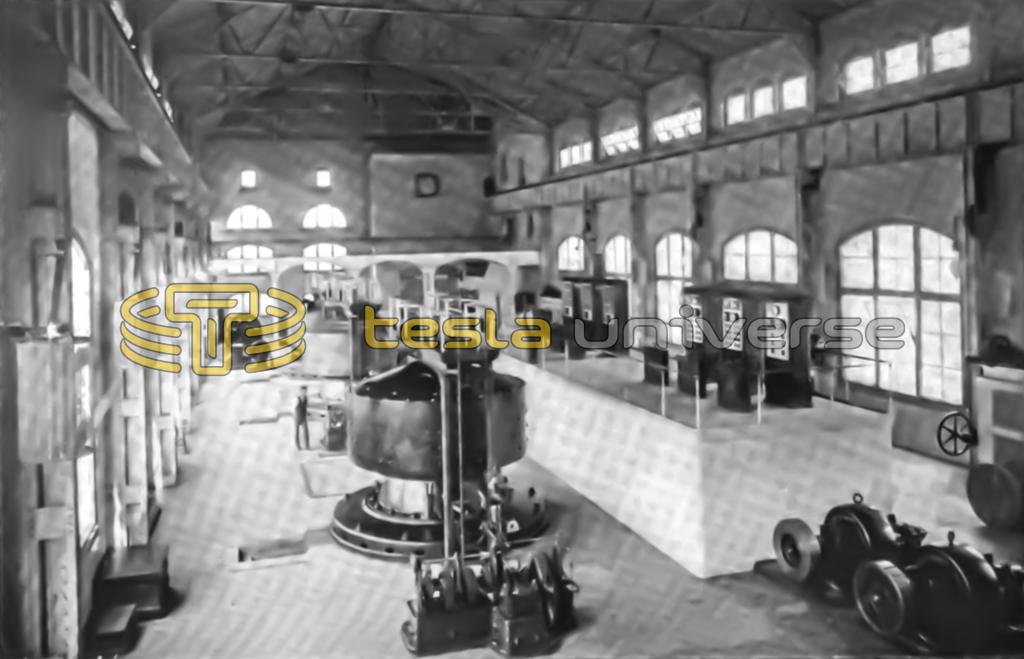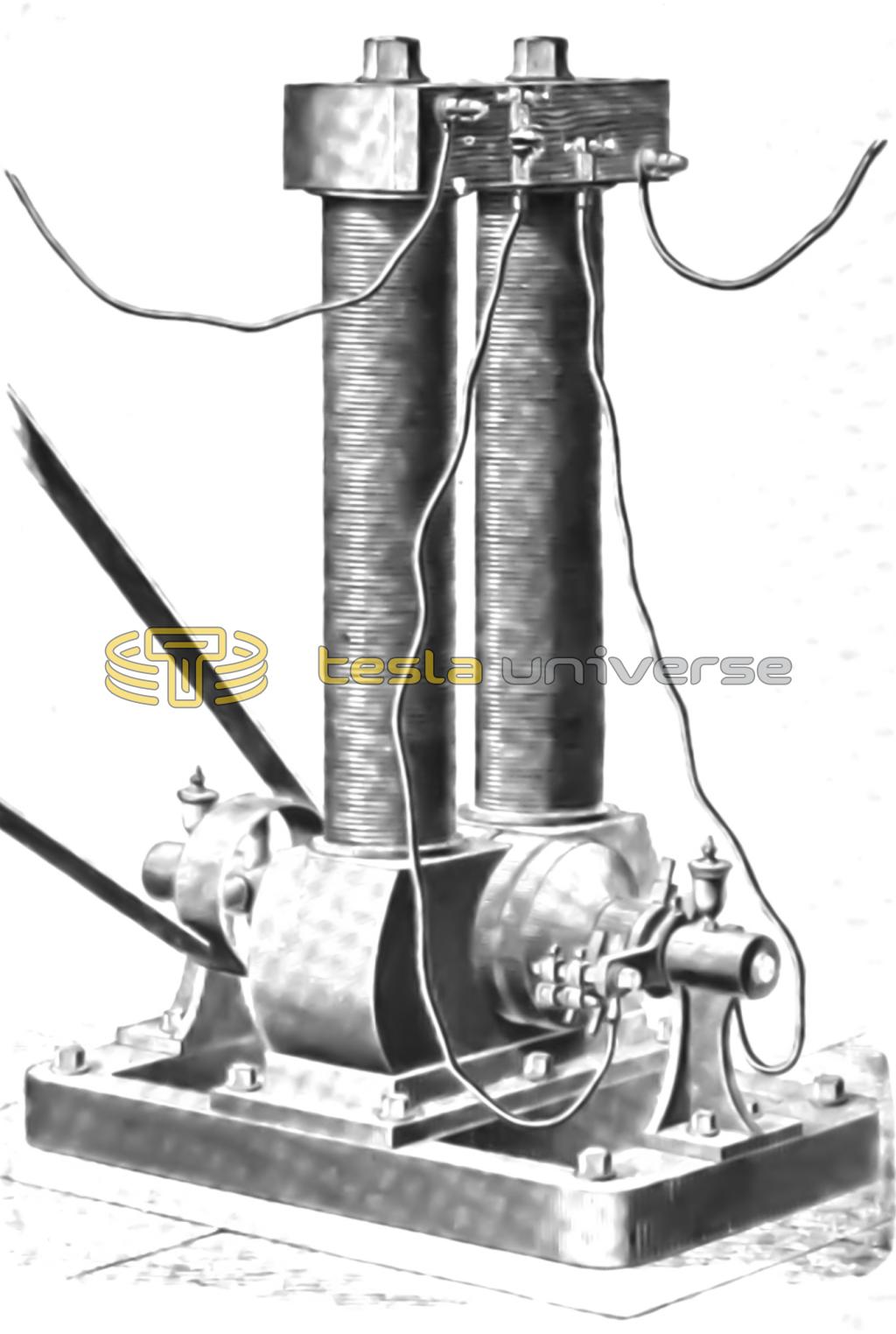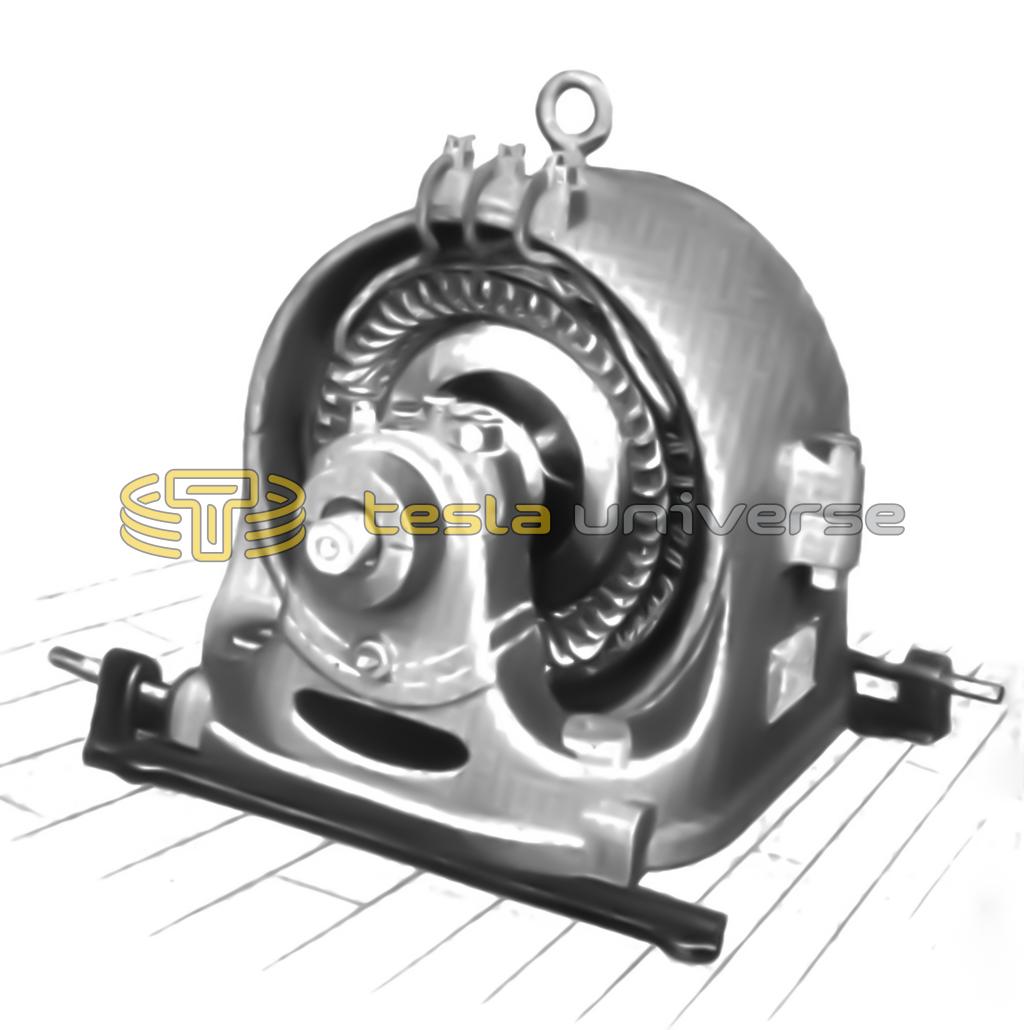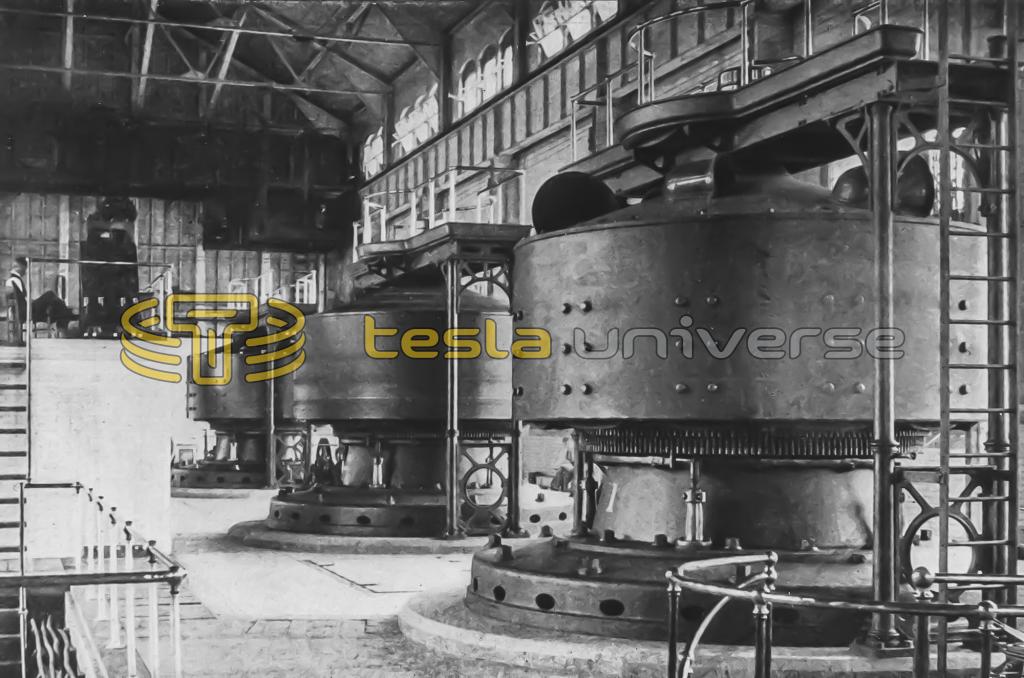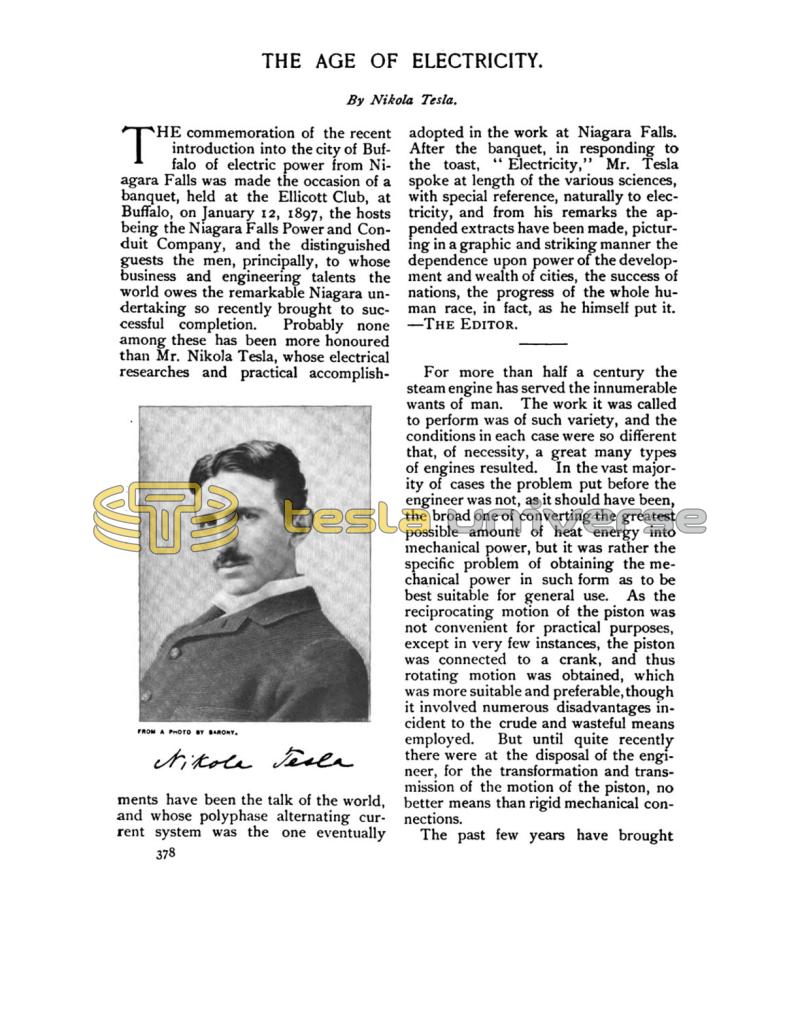
Nikola Tesla Articles
The Age of Electricity
The commemoration of the recent introduction into the city of Buffalo of electric power from Niagara Falls was made the occasion of a banquet, held at the Ellicott Club, at Buffalo, on January 12, 1897, the hosts being the Niagara Falls Power and Conduit Company, and the distinguished guests the men, principally, to whose business and engineering talents the world owes the remarkable Niagara undertaking so recently brought to successful completion. Probably none among these has been more honoured than Mr. Nikola Tesla, whose electrical researches and practical accomplishments have been the talk of the world, and whose polyphase alternating current system was the one eventually adopted in the work at Niagara Falls. After the banquet, in responding to the toast, "Electricity," Mr. Tesla spoke at length of the various sciences, with special reference, naturally to electricity, and from his remarks the appended extracts have been made, picturing in a graphic and striking manner the dependence upon power of the development and wealth of cities, the success of nations, the progress of the whole human race, in fact, as he himself put it. — The Editor.
For more than half a century the steam engine has served the innumerable wants of man. The work it was called to perform was of such variety, and the conditions in each case were so different that, of necessity, a great many types of engines resulted. In the vast majority of cases the problem put before the engineer was not, as it should have been, the broad one of converting the greatest possible amount of heat energy into mechanical power, but it was rather the specific problem of obtaining the mechanical power in such form as to be best suitable for general use. As the reciprocating motion of the piston was not convenient for practical purposes, except in very few instances, the piston was connected to a crank, and thus rotating motion was obtained, which was more suitable and preferable, though it involved numerous disadvantages incident to the crude and wasteful means employed. But until quite recently there were at the disposal of the engineer, for the transformation and transmission of the motion of the piston, no better means than rigid mechanical connections.
The past few years have brought forcibly to the attention of the builder the electric motor, with its ideal features. Here was a mode of transmitting mechanical motion, simpler by far, and also much more economical. Had this mode been perfected earlier, there can be no doubt that the majority of the many types of engines would not exist, for just as soon as an engine was coupled with an electric generator a type was produced capable of almost universal use. From this moment on there was no necessity to endeavor to perfect engines of special designs capable of doing special kinds of work. The engineer's task became now to concentrate all his efforts upon one type, to perfect one kind of engine — the best, the universal, the engine of the immediate future; namely, the one which is best suitable for the generation of electricity.
The first efforts in this direction gave a strong impetus to the development of the reciprocating high-speed engine, and also to the turbine, which latter was a type of engine of very limited practical usefulness, but became, to a certain extent, valuable in connection with the electric generator and motor. Still, even the former engine, though improved in many particulars, is not radically changed, and even now has the same objectionable features and limitations. To do away with these as much as possible, a new type of engine is being perfected in which more favourable conditions for economy are maintained, which expands the working fluid with utmost rapidity and loses little heat on the walls of the engine stripped of all usual regulating mechanism — packings, oilers and other appendages — and forming part of an electric generator; and in this type, I may say, I have implicit faith.
The gas or explosive engine has been likewise profoundly affected by the commercial introduction of electric light and power, particularly in quite recent years. The engineer is turning his energies more and more in this direction, being attracted by the prospect of obtaining a higher thermodynamic efficiency. Much larger engines are now being built, the construction is constantly improved, and a novel type of engine, best suitable for the generation of electricity, is being rapidly evolved.
There are many other lines of manufacture and industry in which the influence of electrical development has been even more powerfully felt, — for instance, the manufacture of a great variety of articles of metal, and especially of chemical products. The welding of metals by electricity, though involving a wasteful process, has, nevertheless, been accepted as a legitimate art, while the manufacture of metal sheet, seamless tubes and the like affords promise of much improvement.
We are coming gradually, but surely, to the fusion of bodies and reduction of all kinds of ores — even of iron ores — by the use of electricity, and in each of these departments great realisations are probable. Again, the economical conversion of ordinary currents of supply into high-frequency currents opens up new possibilities, such as the combination of the atmospheric nitrogen and the production of its compounds; for instance, ammonia and nitric acid, and their salts, by novel processes.
To enumerate the many advances recorded is a subject for the reviewer, but I cannot pass without mentioning the beautiful discoveries of Lenard and Roentgen, particularly the latter, which have found such a powerful response throughout the scientific world that they have made us forget, for a time, the great achievement of Linde in Germany, who has effected the liquefaction of air on an industrial scale by a process of continuous cooling; the discovery of argon by Lord Raleigh and Professor Ramsay, and the splendid pioneer work of Professor Dewar in the field of low temperature research. The fact that the United States have contributed a very liberal share to this prodigious progress must afford to all of us great satisfaction.
While honouring the workers in other countries and all those who, by profession or inclination, are devoting themselves to strictly scientific pursuits, Americans have particular reasons to mention with gratitude the names of those who so much contributed to this marvelous development of electrical industry in the United States. Bell, who, by his admirable invention enabling us to transmit speech to great distances, has profoundly affected our commercial and social relations, and even our very mode of life; Edison, who, had he not done anything else beyond his early work in incandescent lighting, would have proved himself one of the greatest benefactors of the age; Westinghouse, the founder of the commercial alternating system; Brush, the great pioneer of arc lighting; Thomson, who gave us the first practical welding machine, and who, with keen sense, contributed very materially to the development of a number of scientific and industrial branches; Weston, who once led the world in dynamo design, and now leads in the construction of electric instruments; Sprague, who, with rare energy, mastered the problem and insured the success of practical electrical railroading; Acheson, Hall, Willson and others, who are creating new and revolutionising industries here under our very eyes at Niagara.
Nor is the work of these gifted men nearly finished at this hour. Much more is still to come, for, fortunately, most of them are still full of enthusiasm and vigour. All of these men and many more are untiringly at work investigating new regions and opening up unsuspected and promising fields. Weekly, if not daily, we learn through the journals of a new advance into some unexplored region, where at every step success beckons friendly, and leads the toiler on to hard and harder tasks.
But among all these many departments of research, these many branches of industry, new and old, which are being rapidly expanded, there is one dominating all others in importance — one which is of the greatest significance for the comfort and welfare, not to say for the existence, of mankind, and that is the electrical transmission of power. And in this most important of all fields long afterwards, when time will have placed the events in their proper perspective, and assigned men to their deserved places, the great event we are commemorating to-day will stand out as designating a new and glorious epoch in the history of humanity — an epoch grander than that marked by the advent of the steam engine.
We have many a monument of past ages; we have the palaces and pyramids, the temples of the Greek and the cathedrals of Christendom. In them is exemplified the power of men, the greatness of nations, the love of art and religious devotion. But that monument at Niagara has something of its own, more in accord with our present thoughts and tendencies. It is a monument worthy of our scientific age, a true monument of enlightenment and of peace. It signifies the subjugation of natural forces to the service of man, the discontinuance of barbarous methods, the relieving of millions from want and suffering.
No matter what we attempt to do, no matter to what fields we turn our efforts, we are dependent on power. Our economists may propose more economical systems of administration and utilisation of resources, our legislators may make wiser laws and treaties, it matters little; that kind of help can be only temporary. If we want to reduce poverty and misery, if we want to give to every deserving individual what is needed for a safe existence of an intelligent being, we want to provide more machinery, more power. Power is our mainstay, the primary source of our many-sided energies. With sufficient power at our disposal we can satisfy most of our wants and offer a guaranty for safe and comfortable existence to all, except perhaps to those who are the greatest criminals of all — the voluntarily idle.
The development and wealth of a city, the success of a nation, the progress of the whole human race, is regulated by the power available. Think of the victorious march of the British! Apart from the qualities of the race, which have been of great moment, they owe the conquest of the world to — coal. For with coal they produce their iron; coal furnishes them light and heat; coal drives the wheels of their immense manufacturing establishments, and coal propels their conquering fleets. But the stores are being more and more exhausted, the labour is getting dearer and dearer, and the demand is continuously increasing.
It must be clear to every one that soon some new source of power supply must be opened up, or that at least the present methods must be materially improved. A great deal is expected from a more economical utilisation of the stored energy of the carbon in a battery; but while the attainment of such a result would be hailed as a great achievement, it would not be as much of an advance towards the ultimate and permanent method of obtaining power as some engineers seem to believe. By reason both of economy and convenience we are driven to the general adoption of a system of energy supply from central stations, and for such purposes the beauties of the mechanical generation of electricity cannot be exaggerated. The advantages of this universally accepted method are certainly so great that the probability of replacing the engine dynamos by batteries is, in my opinion, a remote one, the more so as the high-pressure steam engine and gas engine give promise of a considerably more economical thermodynamic conversion.
Even if we had this day such an economical coal battery, its introduction in central stations would by no means be assured, as its use would entail many inconveniences and drawbacks. Very likely the carbon could not be burned in its natural form as in a boiler, but would have to be specially prepared to secure uniformity in the current generation. A great many cells would be needed to make up the electromotive force usually required. The process of cleaning and renewal, the handling of nasty fluids and gases and the great space necessary for so many batteries would make it difficult, if not commercially unprofitable, to operate such a plant in a city or densely populated district.
Again, if the station be erected in the outskirts, the conversion by rotating transformers or otherwise would be a serious and unavoidable drawback. Furthermore, the regulating appliances and other accessories which would have to be provided would probably make the plant fully as much, if not more, complicated than the present. We might, of course, place the batteries at or near the coal mine, and from there transmit the energy to distant points in the form of high-tension alternating currents obtained from rotating transformers, but even in this most favourable case the process would be a barbarous one, certainly more so than the present, as it would still involve the consumption of material, while, at the same time, it would restrict the engineer and mechanic in the exercise of their beautiful art. As to the energy supply in small isolated places, as dwellings, I have placed my confidence in the development of a light storage battery, involving the use of chemicals, manufactured by cheap water power, such as some carbide of oxygen-hydrogen cell.
But we shall not satisfy ourselves simply with improving steam and explosive engines or inventing new batteries; we have something much better to work for, a greater task to fulfill. We have to evolve means for obtaining energy from stores which are forever inexhaustible, to perfect methods which do not imply consumption and waste of any material whatever. Upon this great possibility, upon this great problem, the practical solution of which means so much for humanity, I have myself concentrated my efforts for a number of years, and a few happy ideas which came to me have inspired me to attempt the most difficult, and given me strength and courage in adversity.
Nearly six years ago my confidence had become strong enough to prompt me to an expression of hope in the ultimate solution of this all-dominating problem. I have made progress since, and have passed the stage of mere conviction such as is derived from a diligent study of known facts, conclusions and calculations. I now feel sure that the realisation of that idea is not far off. But precisely for this reason I feel impelled to point out here an important fact, which I hope will be remembered.
Having examined for a long time the possibilities of the development I refer to, namely, that of the operation of engines on any point of the earth by the energy of the medium, I find that even under the theoretically best conditions such a method of obtaining power cannot equal in economy, simplicity and many other features the present method, involving a conversion of the mechanical energy of running water into electrical energy and the transmission of the latter in the form of currents of very high tension to great distances. Provided, therefore, that we can avail ourselves of currents of sufficiently high tension, a waterfall affords us the most advantageous means of getting power from the sun sufficient for all our wants, and this recognition has impressed me strongly with the future importance of the water power, not so much because of its commercial value, though it may be very great, but chiefly because of its bearing upon our safety and welfare.
I am glad to say that also in this latter direction my efforts have not been unsuccessful, for I have devised means which will allow us the use in power transmission of electro-motive forces much higher than those practicable with ordinary apparatus. In fact, progress in this field has given me fresh hope that I shall see the fulfillment of one of my fondest dreams; namely, the transmission of power from station to station without the employment of any connecting wire. Still, whatever method of transmission be ultimately adopted, nearness to the source of power will remain an important advantage.
Some of the ideas I have expressed may appear to many hardly realisable; nevertheless, they are the result of long continued thought and work. With ideas it is as with dizzy heights. At first they cause you discomfort and you are anxious to get down, distrustful of your own powers; but soon the remoteness of the turmoil of life and the inspiring influence of the altitude calm your blood; your step gets firm and sure and you begin to look — for dizzier heights.
In the great enterprise at Niagara we see not only a bold engineering and commercial feat, but far more, a giant stride in the right direction as indicated both by exact science and philanthropy. Its success is a signal for the utilisation of water powers all over the world, and its influence upon industrial development is incalculable. We must all rejoice in the great achievement and congratulate the intrepid pioneers who have joined their efforts and means of bring it about. It is a pleasure to learn of the friendly attitude of the citizens of Buffalo and of the encouragement given to the enterprise by the Canadian authorities. We shall hope that other cities, like Rochester on this side and Hamilton and Toronto in Canada, will soon follow Buffalo's lead. This fortunate city herself is to be congratulated. With resources now unequalled, with commercial facilities and advantages such as few cities in the world possess, and with the enthusiasm and progressive spirit of its citizens, it is sure to become one of the greatest industrial centres of the globe.
